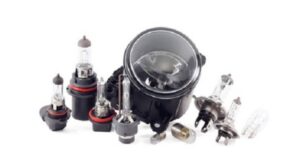Understanding the Basics
Epoxy and super glue are both adhesives commonly used for bonding materials together. While they share the same purpose, they have distinct properties that make them suitable for different applications. Let’s delve into the key differences between these two adhesives.
Epoxy: The Versatile Workhorse
Epoxy is a two-part adhesive that consists of a resin base and a hardener. When mixed together, the resin and hardener undergo a chemical reaction that causes the material to solidify. This process typically requires several hours to cure completely.
Key Advantages of Epoxy:
- Strength: Epoxy is known for its exceptional strength and durability, making it suitable for structural applications.
- Versatility: Epoxy can be formulated with a wide range of properties, including flexibility, hardness, and chemical resistance.
- Adhesion: Epoxy exhibits excellent adhesion to various surfaces, including metals, plastics, wood, and ceramics.
- Durability: Epoxy-cured bonds are highly resistant to abrasion, chemicals, and weathering.
Common Applications of Epoxy:
- Structural repairs (furniture, automotive, marine)
- Bonding metals, plastics, and ceramics
- Filling gaps and cracks
- Creating molds and casts
- Sealing leaks
Super Glue: The Instant Bond
Super glue, also known as cyanoacrylate adhesive, is a single-component adhesive that forms an instant bond upon contact with moisture. It is typically used for small, precision bonding tasks.
Key Advantages of Super Glue:
- Speed: Super glue cures incredibly quickly, often within seconds or minutes.
- Convenience: It is easy to use and requires no mixing.
- Precision: Super glue is ideal for small, precise bonding tasks.
Common Applications of Super Glue:
- Bonding small objects (jewelry, electronics, crafts)
- Repairing broken items (ceramics, plastics)
- Sealing gaps and cracks
Comparing Epoxy and Super Glue
| Feature | Epoxy | Super Glue |
|---|---|---|
| Components | Two-part | Single-component |
| Curing Time | Several hours | Instant |
| Strength | Excellent | Good |
| Versatility | High | Limited |
| Adhesion | Excellent | Good |
| Durability | Excellent | Good |
Choosing the Right Adhesive
The choice between epoxy and super glue depends on the specific requirements of your application. Consider the following factors:
- Curing Time: If you need an instant bond, super glue is the better option. For applications that require longer curing times, epoxy is more suitable.
- Strength: For structural applications or heavy-duty bonding, epoxy is the preferred choice. Super glue is suitable for lighter-duty applications.
- Versatility: If you need a versatile adhesive that can be used for a wide range of materials and applications, epoxy is the better option. Super glue is more limited in its versatility.
- Precision: For small, precise bonding tasks, super glue is the ideal choice. Epoxy is better suited for larger or more structural applications.
By carefully evaluating these factors, you can select the most appropriate adhesive for your project.
Unsure if Epoxy or Super Glue is Right for Your Project? Contact Us or Explore the full range of Incure solutions at www.incurelab.com



